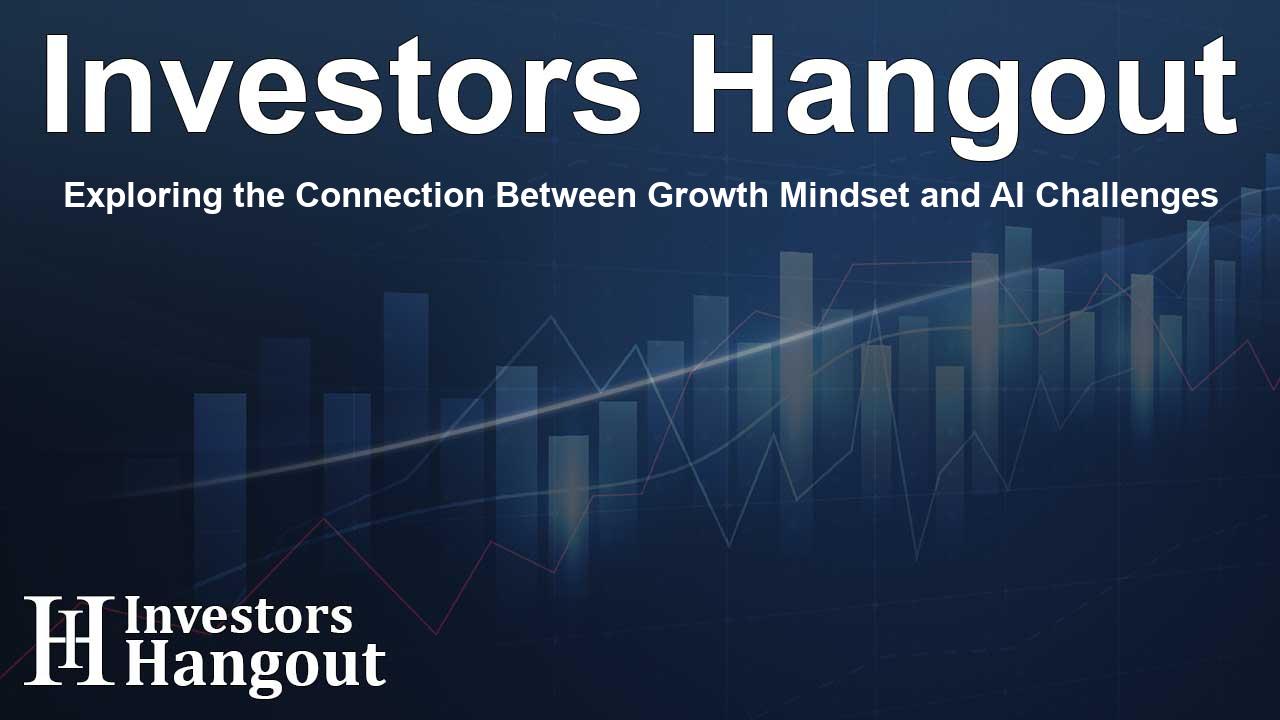Exploring the Connection Between Growth Mindset and AI Challenges

Understanding the Growth Mindset in Today's Workplace
In the contemporary business realm, the concept of a growth mindset is gaining traction. This belief emphasizes that individuals can enhance their intelligence, skills, and talents through dedication and learning. A report from TalentLMS has shown that 80% of executives strongly believe that fostering a growth mindset is vital to driving revenue growth. However, there are apprehensions, particularly concerning how generative AI may affect this development.
The Necessity of Growth Mindset for Revenue Growth
According to recent findings, nearly 89% of leaders express the belief that organizational success is heavily reliant on adopting a growth mindset. This approach not only enhances productivity but also enhances employee engagement. For instance, 64% of executives noted improvements in performance as a direct result of nurturing this mindset within their teams.
Key Findings from the Report
The report's findings signal a strong correlation between a growth mindset and various positive business outcomes. Here are some critical insights:
- 80% of executives affirm that a growth mindset contributes directly to increased revenue.
- 89% believe future business success hinges on leaders who champion this mindset.
- 64% report enhanced productivity and performance, while 58% point to higher employee engagement.
Challenges in Fostering a Growth Mindset
Despite the overwhelming benefits of a growth mindset, both executives and employees encounter significant hurdles. Some of the challenges include:
- Fear of failure and the reluctance to move beyond familiar routines.
- Difficulties in handling negative feedback and constructive criticism.
- Resistance to change and innovative ideas.
Executives agree that overcoming these barriers is essential for nurturing a thriving organizational culture. To tackle these challenges, they emphasize:
- 90% highlight the importance of modeling desired behaviors.
- 87% underscore the need for ongoing learning opportunities within the organization.
- 84% advocate for open conversations about failure to foster acceptance of mistakes.
Bridging the Mindset Gap
While a striking 96% of executives claim to embody a growth mindset, only 45% of employees agree that their leaders consistently demonstrate this attitude in practice. This disconnect sheds light on a significant gap that must be addressed for organizations to reach their full potential.
The Role of AI in Workforce Development
Furthermore, the study reveals that a concerning 53% of executives worry that generative AI could hinder the development of key growth mindset skills, such as:
- Active listening
- Critical thinking
- Time management
This concern emphasizes the potential pitfalls associated with technological integration in workplaces. Leaders must strike a balance between leveraging AI advancements and ensuring that essential interpersonal skills are adequately developed among their teams.
The Value of Continuous Learning
The findings also illustrate the significance of continuous learning for employees. In an era where personal and professional development are paramount, 52% of employees indicated they would seek new employment if it offered greater opportunities for learning and growth.
"This is an urgent call for leadership to act accordingly. Investing in employee development is not merely a recommendation; it is a necessity to retain talent and drive success," stated Nikhl Arora, CEO at Epignosis, the parent company of TalentLMS.
Frequently Asked Questions
What is a growth mindset?
A growth mindset is the belief that individuals can develop their abilities and intelligence through effort, learning, and persistence.
How does a growth mindset impact revenue?
Data shows that 80% of executives connect a growth mindset with improved revenue growth, as it encourages innovation and adaptability.
What challenges do leaders face in promoting a growth mindset?
Challenges include fear of failure, resistance to change, and difficulty with negative feedback, making it essential for leaders to create supportive environments.
What skills are considered essential for a growth mindset?
Critical thinking, active listening, and effective time management are crucial skills that foster a growth mindset.
Why is continuous learning important for employees?
Continuous learning is vital as it empowers employees to evolve professionally, which can lead to greater job satisfaction and retention rates.
About Investors Hangout
Investors Hangout is a leading online stock forum for financial discussion and learning, offering a wide range of free tools and resources. It draws in traders of all levels, who exchange market knowledge, investigate trading tactics, and keep an eye on industry developments in real time. Featuring financial articles, stock message boards, quotes, charts, company profiles, and live news updates. Through cooperative learning and a wealth of informational resources, it helps users from novices creating their first portfolios to experts honing their techniques. Join Investors Hangout today: https://investorshangout.com/
Disclaimer: The content of this article is solely for general informational purposes only; it does not represent legal, financial, or investment advice. Investors Hangout does not offer financial advice; the author is not a licensed financial advisor. Consult a qualified advisor before making any financial or investment decisions based on this article. The author's interpretation of publicly available data shapes the opinions presented here; as a result, they should not be taken as advice to purchase, sell, or hold any securities mentioned or any other investments. The author does not guarantee the accuracy, completeness, or timeliness of any material, providing it "as is." Information and market conditions may change; past performance is not indicative of future outcomes. If any of the material offered here is inaccurate, please contact us for corrections.